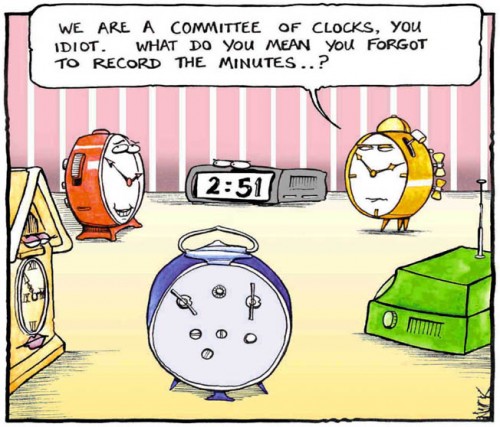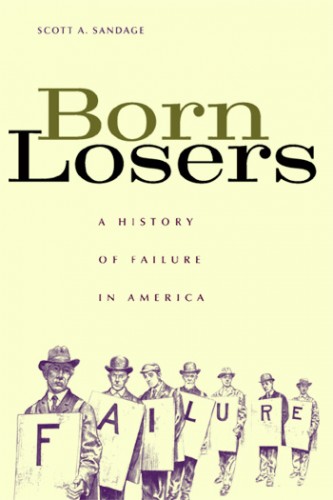
 A few months ago, the associate pastor search committee at my church—of which I am a member—began the process of meeting to find the new addition to the church staff; in effect, leading to the end of my interim position as college ministry director. I have been working toward my own demise as a member of the staff. All interims know that a pink slip has been filled out for them from the first day that they started, but my scenario is a little different than most. I was a member of the church and in the college ministry before I was chosen to become its interim director. I had been picked to be on the committee before I took this position, but, due to unforeseen circumstances, the committee had been stalled for more than a year. Now that the committee is up and running, I find myself in a rather peculiar situation, one that forces me to reflect on the last couple of years as an interim college minister.
A few months ago, the associate pastor search committee at my church—of which I am a member—began the process of meeting to find the new addition to the church staff; in effect, leading to the end of my interim position as college ministry director. I have been working toward my own demise as a member of the staff. All interims know that a pink slip has been filled out for them from the first day that they started, but my scenario is a little different than most. I was a member of the church and in the college ministry before I was chosen to become its interim director. I had been picked to be on the committee before I took this position, but, due to unforeseen circumstances, the committee had been stalled for more than a year. Now that the committee is up and running, I find myself in a rather peculiar situation, one that forces me to reflect on the last couple of years as an interim college minister.
I inherited a ministry that had gone through two transitions in less than a year. The original director, who began the work, had, over a three-year period, built it up to about fifteen to twenty young adults, including myself. He was offered a job at a another church and a free ride to seminary and with a family of four—with one on the way—he could not pass it up. The torch was passed on to another member of the group at the time, and he inherited about half of the original group; the other half were casualties of the ‘cult of personality.’ He was director for seven to eight months before he, too, went to seminary. At that time, I was the oldest member of the group and, though I had some hesitancy about taking over, I felt a sense of responsibility for the group and a desire to keep it going since they had become a kind of family to me. After a short interview process, I was offered the job and thus began my stint as interim.
The next year-and-a-half to two years was a comedy of errors in my mind. I admit that I had some high hopes of bringing in new people to the group and working towards rebuilding the ministry in the beginning, but, about six months to a year in, I became discouraged and developed a more cynical understanding of my role. I was largely unsuccessful in bringing more people into the group and–on the occasion I was able to–one of the other group members left or the person I brought in would not be consistent, eventually dropping off the grid. I started with maybe six to seven consistent people and, currently, there are only about three. I never felt particularly qualified to do a good portion of the job, like preaching, which I did up until this last September. I also was not able to make sufficient inroads into the local community college either. The times I would try to do so, few, if any, showed up. As much as I love the people that are still sticking around, I have struggled with general feelings of failure and inadequacy at my job. The people in the church have been supportive, but that does not always allay the internal judgments that I place on myself.
 I began to view this position as being the guy who would, in the end, either keep the group on life support or, ultimately, pull the plug and see its decline and death. It sounds defeatist, I know, but it was a truthful recognition at the time. I cannot say that I have totally recovered from that position, some days are better and filled with hope and others are worse. For a guy who had succeeded academically, received his masters degree and had been satisfied with his abilities as a teaching assistant in grad school, this ministry work was looking a lot like complete failure, and there was absolutely no way for me to keep that inadequacy from being internalized.
I began to view this position as being the guy who would, in the end, either keep the group on life support or, ultimately, pull the plug and see its decline and death. It sounds defeatist, I know, but it was a truthful recognition at the time. I cannot say that I have totally recovered from that position, some days are better and filled with hope and others are worse. For a guy who had succeeded academically, received his masters degree and had been satisfied with his abilities as a teaching assistant in grad school, this ministry work was looking a lot like complete failure, and there was absolutely no way for me to keep that inadequacy from being internalized.
Of course, this sort of experience is in no way limited to church work or ministry. All of us deal with failure in some way. Whether it be the blue collar worker who, no matter how hard he works, cannot stem the tide of debt and is unable to support his family or the woman who feels inadequate in the face of her husband’s philandering or the teenager who is pressured and fails to make it into their first pick for college or get that athletic scholarship. Failure is universal.
One of the inevitabilities of being on a search committee has to do with interviewing potential candidates and, as you might imagine, the questions I am responsible for asking are the college ministry ones, since that will be a significant focus for the new associate. However, asking those questions also entails giving background and an accurate depiction of what has taken place with the group from its beginning to its time under my direction. And that means I get to recall and describe and explain my failure afresh for each interview, in front of the same seven or eight witnesses. Then comes the glimpse of the slow death of self over and over and over and over. Instead of escaping those feelings of failure and inadequacy, I’m forced to relive them with every interview.
In the midst of this ongoing existential crisis the voice of Kirsten Dunst’s character, Claire Colburn, in Elizabethtown comes screaming into my brain, the scene where she is confronting Orlando Bloom’s character, Drew Baylor, about the dark shadow of his failure at becoming the wunderkind of shoe design. He is unable to let go of it and dwells on his ‘fiasco’ over and over again. At a pivotal point she offers this:
So you failed. Alright you really failed. You failed. You failed. You failed. You failed. You failed. You failed. You failed. You failed. You failed. You failed. You failed. You failed. You think I care about that? I do understand…You wanna be really great? Then have the courage to fail big and stick around. Make them wonder why you’re still smiling.
 Failure, I have slowly come to understand, has a way of revealing the judgment of my own self-imposed laws, not to mention the sin which is exposed by the Law. It has a way of stripping me of what I so strongly hold tight to, what I really love and desire; all of which is misplaced. The recognition and acceptance of failure is a stroke that makes clean the innermost parts, to reword Proverbs 20:30. In failure, I have begun, slowly, to come to know a great, albeit painful, freedom. In the ruins of failure, I find hope in the death of my definition of success.
Failure, I have slowly come to understand, has a way of revealing the judgment of my own self-imposed laws, not to mention the sin which is exposed by the Law. It has a way of stripping me of what I so strongly hold tight to, what I really love and desire; all of which is misplaced. The recognition and acceptance of failure is a stroke that makes clean the innermost parts, to reword Proverbs 20:30. In failure, I have begun, slowly, to come to know a great, albeit painful, freedom. In the ruins of failure, I find hope in the death of my definition of success.
And Jesus speaks to me: “You failed. Alright you really failed…but you know what? You think I care about that? I do understand. You wanna be really great? Then have the courage to fail big and stick around. You have the freedom to fail, because I succeeded for you. I took all of the judgment, all of the punishment on myself. And I did not, and I will not, fail. In me, you will make them wonder why you are smiling. ”
“For to me, to live is Christ and to die is gain.” I think I’m finally beginning to understand what the Apostle Paul was talking about in that verse. While the refrain of ‘failure is not an option’ in my head may not have stopped, it has started to sound increasingly silly. Failure is a very real and inevitable option. One that, these days, is following me around constantly. It is always an option. But maybe, just maybe, failure is also the beginning of hope.
[youtube http://youtu.be/jrf263yJwic&w=600]

COMMENTS
8 responses to “Failure is Always an Option: Reflections on Searching My Way Out of a Job”
Leave a Reply













I don’t think that this is healthy. I don’t think you should be on that committee. I’m not here to tell you what to do, if you really think it is your duty to be on the committee that is fine. But I am here to offer you a few reasons to resign if you want a way out. And there are some. It isn’t just about you avoiding the pain of reliving failure.
I belong to a church body that strongly encourages retired pastors to find another congregation preferably where they will be out of the way. They normally end up in Phoenix. But there is a reason for that, as long as the retired pastor is around, it hampers what the new guy can do. When you leave you leave. And you leave the future up to those who stay. They call the new guy. They know the history and they probably have a bit of a different perspective than you do on the matter. Pastors don’t get to call their successors. They aren’t to be involved in the process at all. Not that it doesn’t happen that they get their fingers all sticky in the pie. But as a rule, you step aside.
Just reading this, I think it might be healthy for you, and healthy for the ministry for you to consider the same. And then consider success and failure to be out of your ability to discern. Where God’s word is there is the Holy Spirit working what he will where he will. What looks like failure could be preparing a foundation. You never know how many of those irregulars have a seed planted in them slowly taking root, where the faith will blossom elsewhere in life. These are things you just don’t know, and never will. God calls us to be faithful to his word that is all.
I appreciate your concern Bror and I will definitely consider your thoughts. I think you have some valid reasoning. When the church reinstated the assoc. pastor search committee, they approached me about whether I would still like to be a part of it or not. Though I had probably not thought about all aspects of being on that committee, at the time, I said I would be willing to IF those in charge of getting the committee together decided that having me on it was appropriate and what they desired for the committee. I guess they did not have any problems with it.
And there are things I do feel responsible for in finding someone to take my place. Every situation is different I suppose. But like I said before, Bror, I appreciate the concern and I will seriously consider your wisdom here. Thank you for your comment and your honesty and encouragement.
Thanks for the post! I am often accused of being negative because I talk in terms of failure so much. That may be true, but I agree with this perspective on failure and would even say that it isn’t even an option because that implies control and ability to avoid failure. What is negative to me is the perspective of others when confronting failure, either their own efforts to avoid or their encouragement and advice to me always seems to be a ‘dressing up’ or a balm on a wound that is meant to bring much deeper, profound healing through things like ‘acceptance’, ‘trust’ and ‘letting go’ etc. Maybe it isn’t a matter of hitching your wagon to failure….but just not hitching your wagon to your success either…or maybe having someone else pull your wagon…
Thank you for that perspective, mbkw. I used to, theologically, be under the realm of free will and I remember the burden and weight of the Law during that time in my life. I questioned by salvation often and never felt like I deserved salvation. Now that I am on the other side of things, theologically–as an addict of grace, I still find those places in my life where I am still putting weight in my own success and my own fulfillment of the Law, instead of recognizing what Christ has already accomplished for me. This situation has been an extra vivid moment of clarity for me in seeing that I still am human and want to save the world (or, at least, this ministry) myself instead of allowing God to use me as His instrument for His kingdom. There is a lot of pain involved in God’s work in us. I think you are right, that, often, we want to sooth the pain too quickly and not allow God to speak to us through it.
Thanks for the comment.
A random thought inspired by, if not directly related to, the OP: I think it’s important to remember that the general public, bless ’em, live by the law and have absolutely no idea what radical grace looks like. Therefore, they are terrified of failure, and when the most common version of “religion” appearing on TV is very happy and has nice teeth, why wouldn’t they be? Those who practice Mockingbird-style grace must, in my opinion, encounter the world with the understanding that you are functioning as sort of a severely outnumbered underground movement. Then when people react as if you are speaking a foreign language, it will not be a surprise or quite as much of a discouragement.
Great thoughts here, William! Thanks for the comment.
I find it interesting that I finally got around to catching up on some of your posts, and here I am confronted by you post on failure. I struggled with inadequacy and fear of failure this weekend (on a smaller scale than you have internalized), and it impacts more than oneself when that happens. You have helped put things into perspective for me. OH, and you aren’t a failure to any of us who know and love you. Period.
I sincerely appreciate the encouraging and gracious thoughts, Dale. We’ll have to grab a beer and talk about your situation here soon. I am blessed to have some wonderful friends!